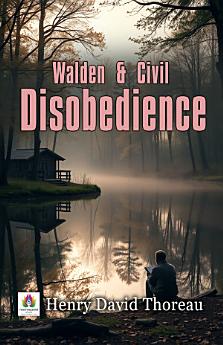Walden & Civil Disobedience
About this ebook
Thoreau’s observations on the changing seasons and the beauty of the natural world evoke a sense of mindfulness that remains relevant today. As he immerses himself in the tranquil surroundings of Walden Pond, he illuminates the significance of simplicity in a society often consumed by materialism and excess. His philosophy transcends mere aesthetic appreciation; it embodies an ideology rooted in transcendentalism and environmentalism. Through striking imagery and insightful reflections, Thoreau inspires a profound respect for nature and advocates for a more sustainable and conscious way of living.
In Civil Disobedience, Thoreau pivots to the realm of social justice and political activism, where he argues for the moral imperative of resisting unjust laws. This powerful essay calls on individuals to prioritize their conscience over government dictates, advocating for personal responsibility in the face of societal injustice. Thoreau's stand against slavery and the Mexican-American War serves as a clarion call for civil rights and personal integrity, urging readers to engage in activism, reflect on their values, and pursue justice holistically.
Together, Walden and Civil Disobedience create a compelling narrative that challenges readers to embrace both self-reliance and social responsibility. Thoreau’s thoughts inspire us to live more thoughtfully, questioning the status quo while seeking harmony with our environment. His insights into individualism and civic duty encourage a re-evaluation of our connection to the earth and our role in the broader societal context, making both works timeless and resonant for contemporary audiences. Through Thoreau's clear lens, we are invited not just to read but to reflect, to immerse ourselves in nature, and to rise for justice in our own lives.






